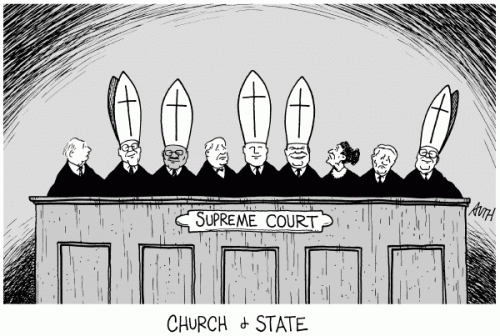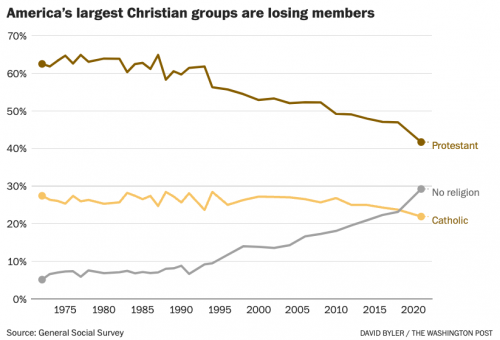I have fond memories of taking my newly wed wife on a date to see Raiders of the Lost Ark at the theater in downtown Eugene, back in the day. I also have fond memories of putting my toddler son Alaric in a little red wagon and trundling him over the Willamette River pedestrian bridge to the Valley River Center mall to see the next Indiana Jones movie…and also the Star War with all the Ewoks in it. These were movies made for entertaining fun, and were the background of my young adulthood. I think they also made my kids happy.
This past week, the latest Indiana Jones movie, Indiana Jones and the Dial of Destiny, is playing here in Morris, and it’ll probably be playing next week as well. I haven’t felt even the most subtle stirrings of sentimentality to motivate me to go. The movie studios have milked me dry.
Also playing: Transformers: Rise of the Beasts. I hope the theater is cleaning up — it’s a co-op, and I’m a member, but here I am, a guy who loves going to the movies, and I’m not at all interested. I’ve even got a free ticket tacked to the refrigerator, and the impulse just isn’t there any more.
One reason is that I’m aware that Indiana Jones is a terrible role model and a very bad scientist built on colonialist preconceptions, part of trope that has been thriving since H. Rider Haggard and Edgar Rice Burroughs.
The basic outlines of the adventure genre will be familiar to Indy fans, though its structure is heavily beholden to the colonialist politics of Haggard’s era: A brilliant White man, very often a professor, deploys personal reserves of cleverness, resilience and unrelenting determination in the service of exploration, discovery and resource extraction. That narrative template guides these stories even when the author attempts to push back on their ideological implications. Think, for example, about how the Indiana Jones films use the Nazi menace to distract from the fact that our hero is almost always appropriating the treasures of Indigenous or pre-colonial peoples. It’s as if they felt obliged to remind us that there’s always a worse White man, as a sort of alibi. It makes perfect sense, from this perspective, that Indiana Jones’s least-successful films are the ones that, like “Temple of Doom,” leave the Nazis out.
That contributes to my lack of interest, for sure. I feel a little bit guilty for enjoying a tale of a swashbuckling college professor fighting Nazis and also, unfortunately, looting non-white people’s history. Unfortunately, the pleasure part of “guilty pleasure” started to fizzle out as I also realized that every single movie is centered on garbage pseudoscience/pseudoarchaeology — the Ark of the Covenant with its vengeful ghosts, an evil Hindu priest who can magic hearts out of his victims, a goblet that grants eternal life, the crystal skulls of telepathic space aliens, and now in the latest, an ancient widget that allows one to travel in time. When you lay it bare like that, stripped of its gallant romanticized hero, they just look stupid. Maybe I can suspend disbelief once or twice, but not for 42 years. The well has gone dry.
I can’t help but feel that Hollywood has lost the script. It’s no longer about creativity and leaps of imagination — it’s about franchises, and repeating the same thing over and over again to wring out every last drop of profit. Indiana Jones should have been retired after the third one, going out on a high note — you could even argue that the first one was enough, time to move on. Star Wars, the same story: wasn’t the first trilogy more than enough, take a break and develop some new “intellectual properties”. Don’t get me started on superhero movies. I am so over the endless permutations of Batman. And now they’ve got this “multiverse” nonsense as an excuse to slap new costumes on tired old musclebound heroes.
It’s not just me, either. I was shocked to discover that the ever-optimistic Mikey Neumann, of Movies with Mikey, failed to find a single moment of joy in his review of Space Jam 2 (a movie that was completely off my radar, admittedly, and would actively avert any interest I might have in going to the movies). This was entirely out of character for him, but I think I share his despair at the ongoing corporatization of art. Neumann can usually find something worthy in even the most dreadful dreck, but Space Jam 2 is the product of a soulless corporate beancounter who saw the entire legacy of Warner Bros. as a fantastic collection of assets,
a pile of stuff he couldn’t appreciate but could sell at an ungodly profit.
There are still a few movies I look forward to seeing, but none of them are attached to a “franchise.” That word is killing movies, just as “franchise” has killed so many small, unique, interesting diners around the country. It’s a word that makes profit-seeking landlords and accountants drool, though — too bad it has the opposite effect on consumers.








